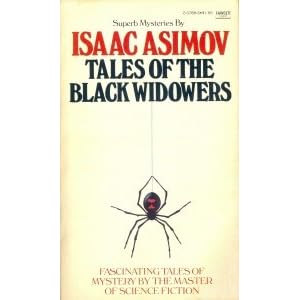What makes this particular story special to me (although I love all the little darlings equally, of course) is that it belongs to a specific subgenre: one character relates a story containing a puzzle and another character solves it. It is the first Shanks story of that type I have gotten published, though not for lack of trying.
Here is the opening scene:
“I don’t think my alcohol level is
over the legal limit,” said Leopold Longshanks.
“I could probably drive home all right.
But I figure there’s no point in taking chances.”
“I know,” said the taxi driver. “You’ve told me that three times.”
“Oh.” Shanks considered. “Then maybe I do need a ride.”
“Hop in.”
You can probably guess that the taxi driver is the one with the story to tell.
The earliest example of this story type of which I am aware is "The Tuesday Night Club," (1927) by Agatha Christie. It is also the first appearance of one of literature's great detectives, Miss Jane Marple. In this story a group of friends gather and discuss a genuine crime. To everyone's surprise the elderly spinster solves the crime. Christie published a series of stories about this club, published as The Thirteen Problems and The Tuesday Club Murders.
Another great example is (are?) the Black Widower stories of Isaac Asimov. He acknowledged Christie as his inspiration for them, by the way. These short tales featured a group of men whose meetings were enlivened each month by a guest who, inevitably, had a puzzle in need of solving. After all the clever and sophisticated members had picked the problem to pieces Henry, the waiter, would provide the solution.
You'll notice that both of these series are not only stories-within-stories, but examples of the least-likely-detective syndrome, since Miss Marple and Henry would appear to be the least qualified members of their groups to solve a mystery.
My friend Shanks doesn't qualify for that, of course. He is a reluctant, but highly logical choice for detective. He is so logical, in fact, that he complains the concept is ridiculous: no one could possibly get enough information from a tale-teller to figure out whodunit. Alas, I am cooking the books so he has no choice but to succeed.
And I think I will leave it there. If you want to know more, you know where to find the rest of the tale.



"Shanks' Ride" sounds like a lot of fun. Since I already subscribe to AHMM it's the next thing on my list to read. Enjoy reading your commentary no matter the venue. Yours truly, Toe
ReplyDeleteRob, can't wait to read "Shank's Ride,"
ReplyDeleteCongratulations on your newest story!
ReplyDeleteWhat a nice way to start the new year.
tThanks, all. Over on my other blog, Little Big Crimes, Bill Crider was kind enough to say he liked it. And I am egotistical enough to point that out.
ReplyDeleteRob,
ReplyDeleteAs I already told you at the SMFS site, I enjoyed your story. When one can create a character that the reader continues to enjoy time after time, it's like capturing lightning in a bottle. Shanks is one of them. John's Angela Potts is another. Of course, she is a witness and not one who solves crimes after hearing about them. But there are similarities.
Are the Black Widower stories now available in book form?
Congratulations! And if you wrote a story about a writer writing a story featuring a troupe playing Hamlet, your blog about it would be . . . never mind, my head hurts.
ReplyDeleteRob,
ReplyDeleteI loved "Shanks' Ride" and was so happy to read a new Shanks story. Congrats on your twentieth appearance in AHMM! I hope to read many more from you.
Bob D.
Rob, good going on getting your 12th Shanks story published in AHMM. You're ahead of me, I only have 10 in my Twin Brothers Bail Bond series published. I'll catch your story as soon as my local B&N gets it in.
ReplyDeleteJust finished reading "Shanks' Ride" - very nice twist. God help him, that's all I can say. :)
ReplyDeleteI'd forgotten the Black Widower series - I'll have to get that ILL. And I love the Tuesday Club Murders. Some of those are wonderful.
Eve
Herschel, the Widowers stories are in paperback and you can find them in the used stores easilly. there was a last collection whose title I don't remember that came out a year or so ago. And Rob, I love the "club stories" in all their variations. Can't wait to read yours!
ReplyDeleteEve, you made me laugh. R.T. You are ahead of me, this is only no. 8/ for Shanks. Thanks, all.
ReplyDeleteRob, I think your story within a story idea is great. I really loved the Tales of the Black Widowers -- and look forward to reading your latest Shanks story!
ReplyDelete--Dix